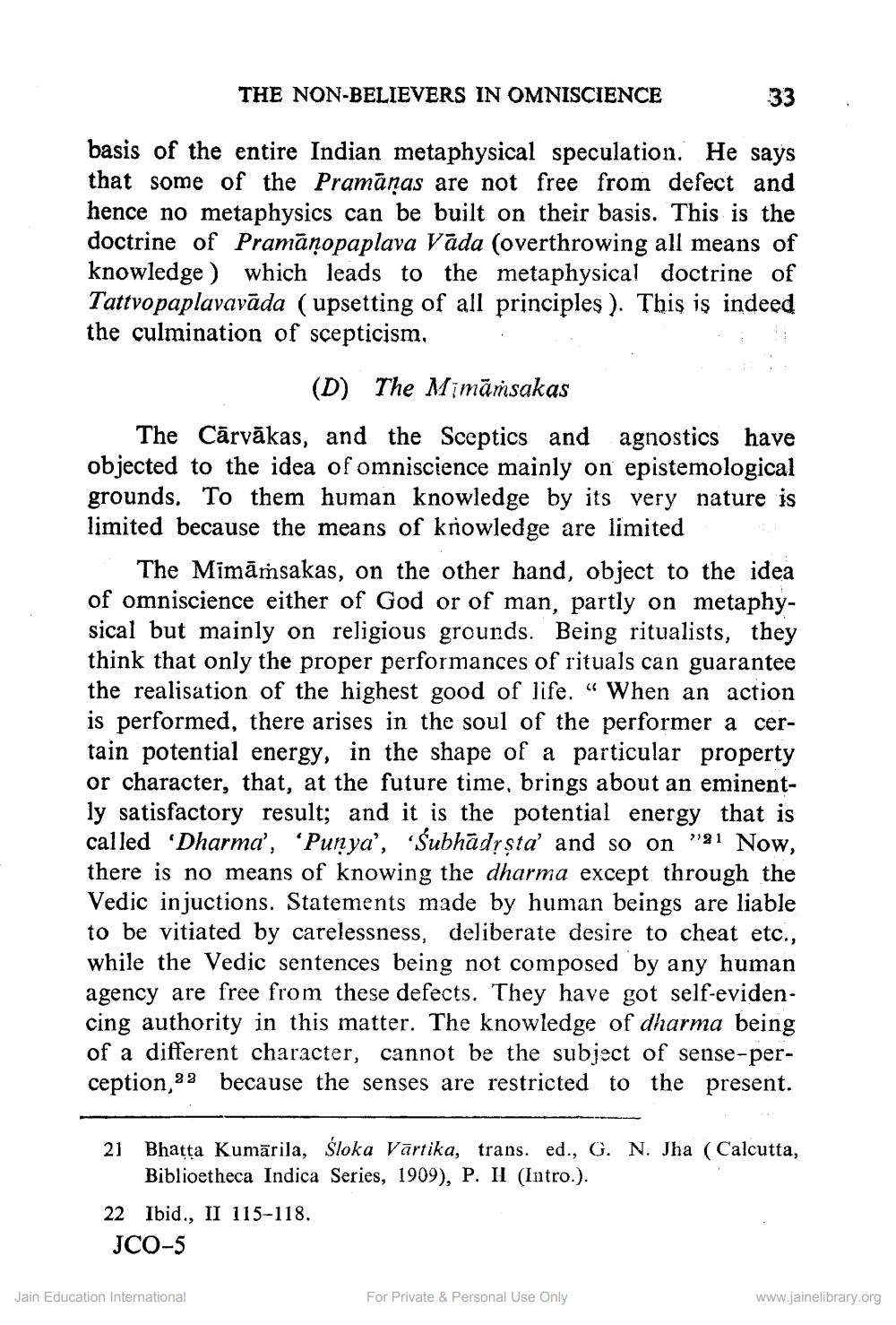________________
THE NON-BELIEVERS IN OMNISCIENCE
33
basis of the entire Indian metaphysical speculation. He says that some of the Pramāņas are not free from defect and hence no metaphysics can be built on their basis. This is the doctrine of Pramāṇopaplava Vāda (overthrowing all means of knowledge ) which leads to the metaphysical doctrine of Tattvopaplavavāda ( upsetting of all principles ). This is indeed the culmination of s
ism,
(D) The Mimāṁsakas
The Cārvākas, and the Sceptics and agnostics have objected to the idea of omniscience mainly on epistemological grounds. To them human knowledge by its very nature is limited because the means of knowledge are limited
The Mimāṁsakas, on the other hand, object to the idea of omniscience either of God or of man, partly on metaphysical but mainly on religious grounds. Being ritualists, they think that only the proper performances of rituals can guarantee the realisation of the highest good of life.“ When an action is performed, there arises in the soul of the performer a certain potential energy, in the shape of a particular property or character, that, at the future time, brings about an eminently satisfactory result; and it is the potential energy that is called 'Dharma', 'Punya', 'Subhādışta' and so on "21 Now, there is no means of knowing the dharma except through the Vedic injuctions. Statements made by human beings are liable to be vitiated by carelessness, deliberate desire to cheat etc., while the Vedic sentences being not composed by any human agency are free from these defects. They have got self-evidencing authority in this matter. The knowledge of dharma being of a different character, cannot be the subject of sense-perception, 33 because the senses are restricted to the present.
21 Bhatta Kumārila, sloka Vārtika, trans. ed., G. N. Jha (Calcutta,
Biblioetheca Indica Series, 1909), P. II (Intro.).
22 Ibid., II 115-118. JCO-5
Jain Education International
For Private & Personal Use Only
www.jainelibrary.org




